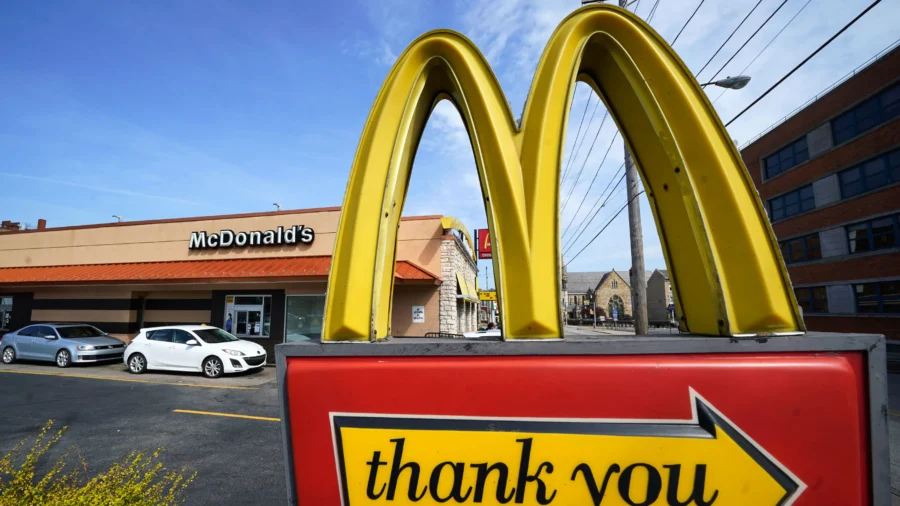The U.S. Centers for Disease Control and Prevention (CDC) on Tuesday announced that a multi-state E. coli outbreak linked to McDonald’s Quarter Pounder hamburgers has ended.
Since the CDC launched an investigation on Oct. 22, it has found 104 E. coli cases in 14 states. The agency said 43 people were hospitalized, and one Colorado resident died in connection to the outbreak.
Meanwhile, at least four people contracted hemolytic uremic syndrome, a rare but serious disease linked to E. coli that can trigger kidney failure, according to the CDC.
The U.S. Food and Drug Administration (FDA) said that recalled onions used on Quarter Pounders were the likely source of the outbreak, distributed by California-based Taylor Farms and served raw on Quarter Pounders at McDonald’s restaurants in Colorado, Kansas, Wyoming, and other states. Taylor Farms initiated a voluntary recall of yellow onions on Oct. 22.
“McDonald’s is no longer serving recalled onions and there does not appear to be a continued food safety concern related to this outbreak,” the FDA said Tuesday in a statement.
Federal and state health officials in Colorado didn’t find the strain of E. coli that caused the illnesses in the onions it tested or in any samples from the environment.
The FDA had “tested recalled onions and one environmental sample from a grower. Both of these samples tested positive for non-O157:H7 Shiga toxin-producing E. coli,” said the CDC notice. “The E. coli found was not the outbreak strain and no human illnesses were found related to the strain. Additional samples from this investigation were negative for E. coli.”
According to the CDC, state and local public health officials interviewed 81 people who reported sickness about the foods they ate in the week before their symptoms. All except one said they ate at McDonald’s, and 63 of them—84 percent—reported a menu item containing fresh, slivered onions.
McDonald’s in October announced it pulled Quarter Pounders from a number of locations in the United States in response to the outbreak. It resumed selling the product with slivered onions last month, it said.
“The decision to do this is not one we take lightly, and it was made in close consultation with the CDC,” McDonald’s USA President Joe Erlinger said after the product was pulled, adding that other beef products are not affected. “This is a temporary change as the investigation continues and we are working quickly to return our full menu in these states as soon as possible.”
The outbreak has hurt demand. In mid-November, McDonald’s said it planned to spend $100 million to bring customers back to stores, including $65 million that will go directly to the hardest-hit franchisees.
In late October, McDonald’s CEO Chris Kempczinski issued an apology over the incident, saying that “we are sorry for what our customers have experienced” and offered his “sincere and deepest sympathies.”
Officials with the CDC and health experts say that symptoms of E. coli, a type of bacteria, can start three to five days later. These include severe stomach cramps, bloody diarrhea, vomiting, a low-grade fever, and a loss of appetite.
According to the Cleveland Clinic, if E. coli spreads outside the stomach, other symptoms can be present. Should the bacteria infect the urinary tract, symptoms include pelvic or abdominal pain, pain or burning sensation when urinating, an urgent need to urinate frequently, and cloudy or foul-smelling urine.
The CDC has also said that people who suspect they may have contracted E. coli and have severe symptoms should contact a health care provider.
Severe symptoms can include a fever of 102 degrees F or higher, diarrhea for more than three days that is not improving, bloody diarrhea, vomiting so much that liquids cannot be kept down, and signs of dehydration such as not urinating often, a dry mouth and throat, and feeling dizzy when standing.
The Associated Press contributed to this report.
From The Epoch Times

